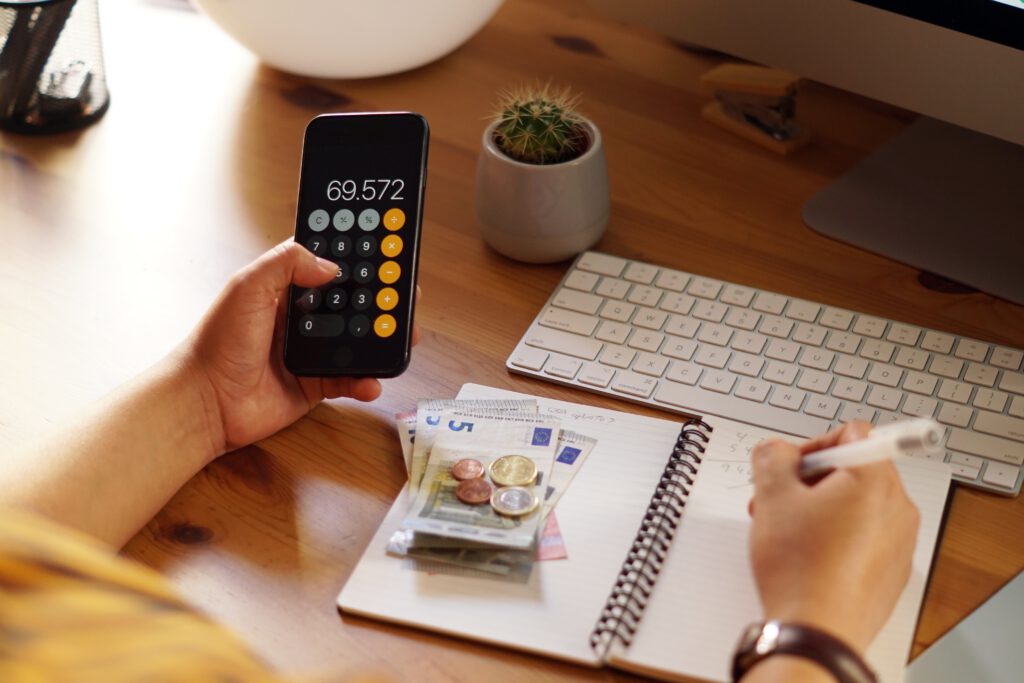When you think of the Netherlands, what’s the first thing that springs to mind? Is it windmills, cheese, or tulips? Or maybe it’s the infamous Tikkie — an online payment system where you can send people requests for absurdly small amounts of money.
There’s no official rule book for using Tikkie — but there really should be one. With their reputation for being both direct and stingy, Dutch people seem to have no problems navigating the unspoken rules of the payment platform.
READ MORE | What is Tikkie? How to use the Dutch’s favourite payment system
For internationals who come from less direct cultures, though, the art (or extreme sport, if you’re Dutch) of Tikkie-ing can be quite the minefield.
What’s an appropriate amount to request a Tikkie for?
Anyone who’s lived in the Netherlands for a while has probably realised that the idea of reciprocity, or doing rounds, doesn’t really exist here. Don’t get us wrong, this can have its advantages… But not that many. 😂
Instead of living by the rules of reciprocity, Dutchies prefer to settle the bill (no matter how big or small) as soon as possible to make sure no person is indebted to another.

In other words, if you’ve ever interacted with Dutch people, you’ve probably received a Tikkie for €0.80 or an equally negligible amount.
You should not be surprised if you’ve received a Tikkie from a guy you went on a date with who wants to be reimbursed for the €0.50 contribution he made so you could use the public toilet 🚽.
Or from a friend who covered the €1.50 you needed for a morning coffee. ☕
While having an easy way to request your money is great, we’d suggest holding off on those Tikkies for less than €4 at the cost of looking heel stingy. 💸
When is it socially acceptable to send a Tikkie?
We asked the DutchReview readers for their opinions, and the general consensus is that the sooner you send that Tikkie, the better.
Maybe don’t send it while you’re still seated at the restaurant, having just put your forks down — that might come off as a little desperate. But if you send it when you get home or the next morning, you’re generally good to go.

When is it appropriate to send a Tikkie follow-up request?
If a week or more has passed and your money’s still conspicuously absent from your bank account, go ahead and send a follow-up request.
@dutchreview Mhm, keep telling yourselves that #dutch #expat #dutchreview #fyp #fyp #nederlands #tikkie ♬ original sound – DutchReview
But not the next day — people are busy, and sometimes international bank transfers take a bit of time.
What if you forget to send the Tikkie — how long do you have?
The amount of time permissible for a Tikkie request kind of depends on the amount of money that you’re asking for. There’s nothing less charming than bamboozling someone with a €2 Tikkie for a party you went to two months ago. Don’t do that. People won’t like you for it. 🙄
But say you’re going through your bank account, and remember that you paid €30 for a friend two months ago. Then you’re well within your rights to send a Tikkie, and everyone will respect you for it.
The jury is still out on sums between €10-€20 — but we think a safe rule of thumb is that if you haven’t sent that Tikkie within a month, you should see that round of drinks as being on you. 🍻
Where do you stand on the highly-debated subject of Tikkies? Tell us in the comments below!
Editor’s Note: This article was originally published in October 2021 and was fully updated in September 2023 for your reading pleasure.





As a Dutch person: a lot of us do not use ‘tikkies’ and regard this sytem as highly suspicious and potentially fraudulent. I think tikkies mean you are not really friends but just acquaintances, because among close friends it does not matter who pays a bit more or when you are getting your money (if they asked you to help out with something). You will ‘settle the score’ live, next time you see each other. The only person you send a tikkie to is the one that always ‘forgets’ to pay.
I think it’s more likely that people sending tikkies back and forth don’t really have the money to not do this.
I can’t imagine bothering anyone over amounts less than ten euros unless they’re a consistent mooch.
Hi fellow Zimbo in NL! 😉 Great article! I think Tikkie is so useful and convenient, wish we had something similar back home. Stay safe 🇿🇼💐
Honestly Dutch culture is just sad and cowardly
Don t you even think of trying sending a Tikkie to this Italian. This is morbose : in what se s? It is a sickness to love money so much to forget kindness and etiquette : stinginess directness may be a “ quality” in the Nederlands but is highly inappropriate in any culture that prizes heartwarming relationships kindness and business with a flair of trust and generosity. You are warned!:)
As a Dutchie I don’t recognize the picture that’s painted in this article at all. Doing rounds is very common here. When I pay this time, I know my friend will pay next time. Also, sending a tikkie after a first date is frowned upon. The only men who wanted to splitt the bill with me on a first date were expats. Dutch men have always insisted on paying.
I am Dutch and I am ashamed of this new nonsense. When you can not afford to invite people don’t flippe invited them.
I am from Limburg somebody who visits me is welcome and can eat and drink as they like.
Seeing the comments on this also shows that this skewed image that other countries/nationalities have of the Netherlands/Dutch people is so prevailing that it doesn’t seem to matter how much we prove the difference. This nonsense of Dutch people being stingy must be based on the Dutch people living in the capital or bigger cities. In the rest of the country people do rounds and don’t bother with the small change at all. And Tikkie’s, or payment requests through internet banking, are mostly used for bigger amounts mostly because it is becoming less and less of a cash society. The people I know here who carry cash are mostly older people, young people don’t seem to bother with it anymore seeing how inconvenient cash is.
I’m very glad I was able to pay some restaurants by Tikkie. I wish it would be more common to pay shops and horeca this way.
Stop the nonesense! Not everyone can afford to buy a top model smartphone.